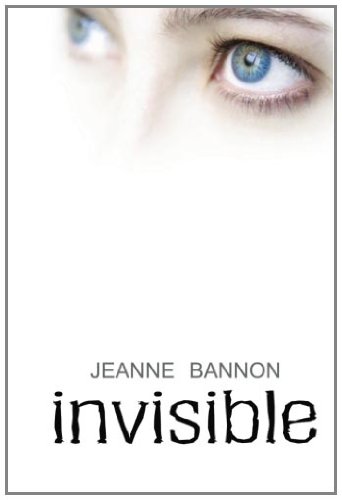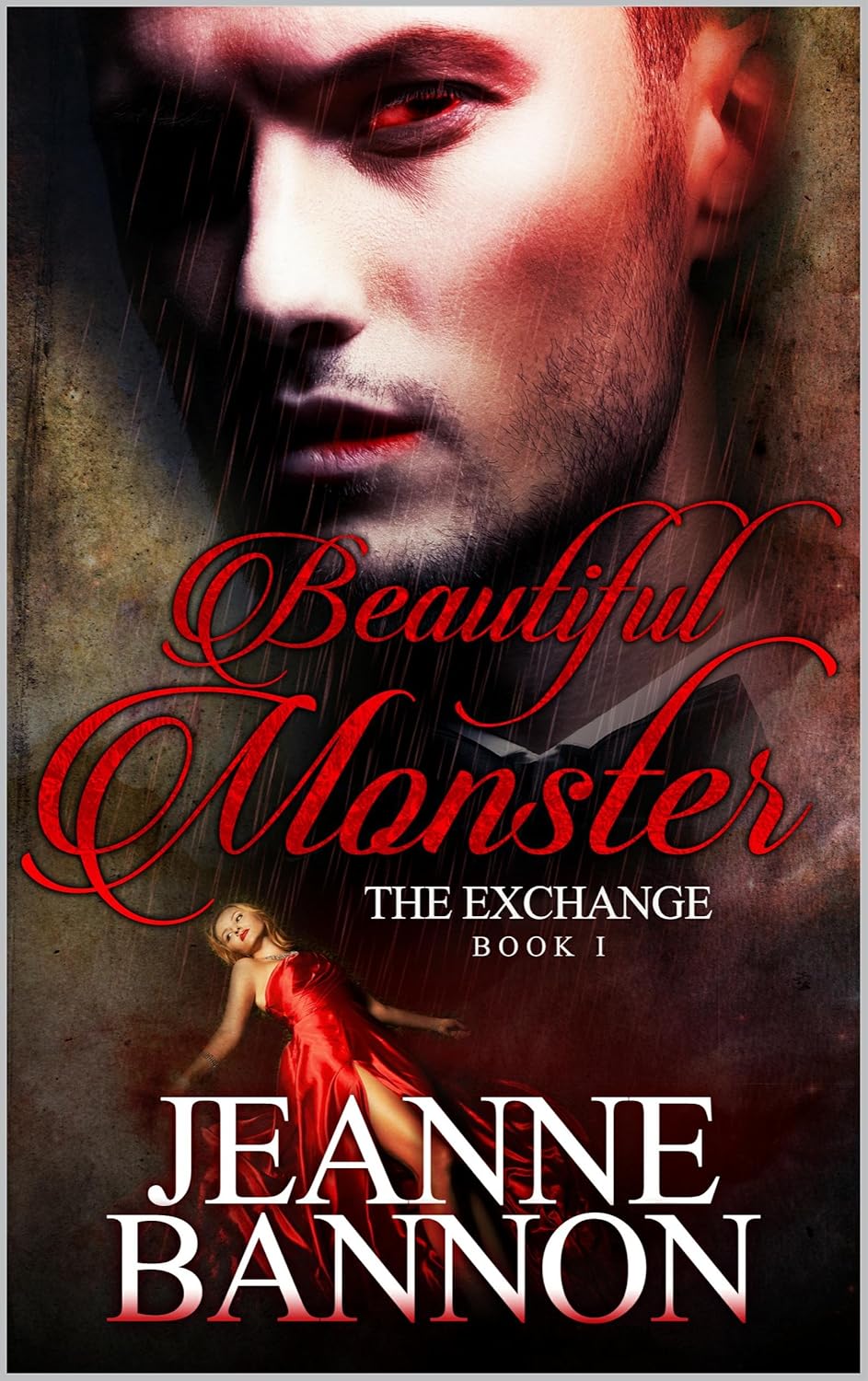Today I am pleased to welcome a Canadian author Jeanne Bannon-Repole whose debut novel Invisible was optioned for a film. Jeanne opens up about the real life angst and heartbreak behind her sensational novel. It's currently being edited and revamped, so if you want to obtain a copy of it, please contact Jeanne directly.
MJN: Undoubtedly, you have read H.G. Wells' influential sci-fi novel, The
Invisible Man,
in which the protagonist, a chemistry prodigy, Griffin makes
himself invisible as means of gaining impunity and power. In your novel, Invisible, you explore the common teenage fantasy
of vanishing. It's no secret that many teens, even those who do not
experience a lot of social rejection, think about suicide. Usually those
thoughts do not lead to action. But in a way, becoming invisible is a
form of social suicide, one that's morally more acceptable, because you don't
cease to exist for yourself - just for the rest of the world.
JB: I suppose
you’d just like me to comment on your statement?
Actually, I have not
read The Invisible Man. I wrote Invisible because I was a victim of
bullying when I was in grade 7 and 8. It was purely a cathartic endeavor for
me. I wrote it quickly, in only six months, and it was picked up by the first
publisher I sent it to. I was incredibly lucky. I’ve learned since then, that
writing is not an easy profession and is fraught with challenges.
By writing Invisible, I chose a character who was physically
different from me but possessed some of my traits. Lola Savullo is tall and
overweight. I’m neither. I didn’t want readers, especially those who know me,
to think it was autobiographical. It does however, contain a few tidbits from
my own experiences. Though it really is a work of pure fiction. I want those
who read it to be able to identify with Lola’s struggles as well as those of
her sexually ambiguous best friend, Charlie. I hope I’ve helped a few people
with the positive message Invisible
conveys.
MJN: Congratulations on having Invisible optioned for film. Can
you tell us what the process of optioning involves? There are many
writers who think that selling movie rights automatically guarantees that a
movie will be made.
JB: A little
over two years ago I was on top of the world. I’d just signed a contract for a
movie option. I was given a bit of money for signing and was told Invisible was being turned into a
screenplay and pitched to CBS and Netflix. What more could a writer want?
However, that all changed just a month ago when I got the news the company
holding the movie rights closed down. The movie rights reverted to me. Guess I
can’t give much insight as to the process as nothing came of the option.
MJN: Say, in a perfect world, if your novel were to be made into a movie, which actress would you pick to play Lola? If you had any say in the casting process, would you opt for a big name or a relatively obscure name? Based on Lola's physical description, she is not exactly a traditional Hollywood beauty. Sometimes it's hard for a young actress who does not correspond to the standards to break into mainstream roles. You would probably be dealing with character actresses. Or a traditional 5'10" beauty who would be willing to pack on 50 lbs for the role!
JB: I have
given this a bit of thought but could never think of anyone to play Lola. I
don’t think girls/women of her size and height are common leads for Hollywood
movies. You’re right about the character actor thing. Lola would more than
likely be played by an unknown or an actor just starting out.
MJN: Let's talk about what makes someone an easy target for the
peers. It's interesting that most male bullying victims are presented as
puny. But for girls, it seems that the criteria is opposite. A tall and
big-boned girl can come across as very vulnerable. As you can
probably tell, the subject is very sensitive for me. Growing up, I
suffered socially, in spite of my many apparent advantages. I was petite,
always got good grades in school, had two successful parents who bought me
fashionable clothes. And yet I still was at odds with my peers, sometimes
violently. I've been trying to figure out what makes someone a victim, or at
least puts someone at risk for victimhood.
JB: As I
wrote above, I, too, was a victim of bullying and can understand your pain. I
tried to fit in; wore the ‘right’ clothes, etc., but it didn’t work. It’s as if
bullies sense vulnerability and pick on kids who are easy targets. For me, the
bullying began when we moved. I came from a great school and the new one was
less than stellar. I was a high achiever academically and the kids in my class
saw that as a reason to pick on me. I even dumbed myself down for a little
while, but it seemed nothing I did was good enough. I’m happy now, of course,
because I wouldn’t want to be like those who picked on me.
I believe I was a victim
because I didn’t speak up for myself. I never told a teacher (though, I think
they knew), and never told my parents. I thought I was being bullied because
something was wrong with me. I felt it was my fault.
Over the years, I’ve
seen a huge change in bullying awareness and tolerance. I know it still exists
but we, as a society, are not sweeping it under the rug like we used to. It’s
not a verboten subject anymore, and for that, I’m grateful.
MJN: I understand your latest project in the works is a paranormal
thriller with a working title Dark Angel.
Do you have any concerns about your novel standing out, since there are quite a
few items on the market with the same title, including a TV series with Jessica
Alba?
JB: Dark Angel has been in the works for about six or seven years now. It
is the first novel I wrote but I keep putting it on the back burner because of
its complexity. It’s the story of a female vigilante who’s tasked with
murdering a kingpin of an elitist group. A group set on reducing the world’s
population to suit their own needs. Think illuminati meets Nikita. It’s close
to being completed, however, there are a few problems that need resolving. I’m
not sure it will ever be done.
I’m not concerned with Dark Angel standing out. It’s unique and
I’ve never seen or read anything like it. As for the title, well, it can be
changed and they often are once a publisher gets a hold of the manuscript.
That said, I’m working
on other projects as well. I’ve written a novella entitled, Beautiful Monster — The Exchange (Book One) about a vampire whose mortal
lover dies. He wants to be with her in the afterlife but cannot since he’s
soulless. I’ve started Book Two and want to have that completed by the end of
the summer. I also have a few other projects on the go. I guess I should pick
one and stick with it.
I work as a freelance
editor/proofreader and it’s difficult to find time to work on my own projects.


Thank you so much for interviewing me for your blog. I very much appreciate it. Your questions were complex and interesting. It made the interview that much more fun.
ReplyDeleteInteresting interview. Congratulations Marina and Jeanne. I enjoyed this.
ReplyDelete